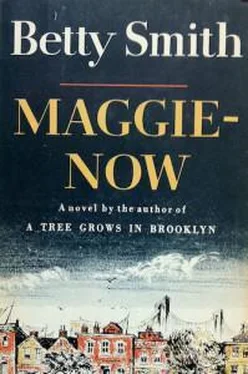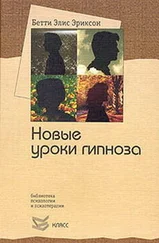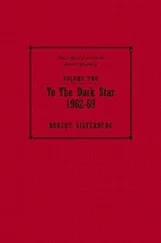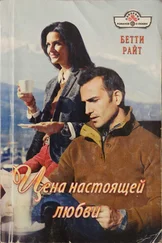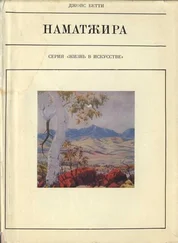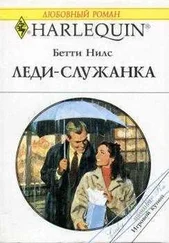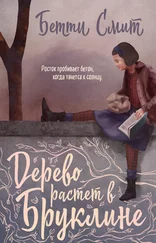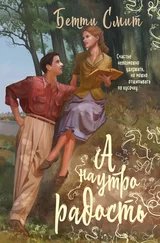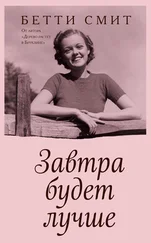Бетти Смит - Maggie-Now
Здесь есть возможность читать онлайн «Бетти Смит - Maggie-Now» весь текст электронной книги совершенно бесплатно (целиком полную версию без сокращений). В некоторых случаях можно слушать аудио, скачать через торрент в формате fb2 и присутствует краткое содержание. Жанр: Проза, на английском языке. Описание произведения, (предисловие) а так же отзывы посетителей доступны на портале библиотеки ЛибКат.
- Название:Maggie-Now
- Автор:
- Жанр:
- Год:неизвестен
- ISBN:нет данных
- Рейтинг книги:3 / 5. Голосов: 1
-
Избранное:Добавить в избранное
- Отзывы:
-
Ваша оценка:
- 60
- 1
- 2
- 3
- 4
- 5
Maggie-Now: краткое содержание, описание и аннотация
Предлагаем к чтению аннотацию, описание, краткое содержание или предисловие (зависит от того, что написал сам автор книги «Maggie-Now»). Если вы не нашли необходимую информацию о книге — напишите в комментариях, мы постараемся отыскать её.
Maggie-Now — читать онлайн бесплатно полную книгу (весь текст) целиком
Ниже представлен текст книги, разбитый по страницам. Система сохранения места последней прочитанной страницы, позволяет с удобством читать онлайн бесплатно книгу «Maggie-Now», без необходимости каждый раз заново искать на чём Вы остановились. Поставьте закладку, и сможете в любой момент перейти на страницу, на которой закончили чтение.
Интервал:
Закладка:
Fearing another emergency like that, she held back on Maggie-Now.
The waiter brought the food and, to nobody's surprise, an extra plate and fork for Maggie-Now. He was used to people ordering and saying the child didn't want anything and, after the food was served, being requested to bring an extra plate and fork. So he brought the extra plate and fork along with the order to save time. Mary divided her pot cheese and chives with Maggie-Now.
"She can have some of mine," said Mrs. Schondle, reluctantly pushing her bowl toward YIaggie-Now.
"Oh, no," said Maggie-Now.
"She has enough, thank you," said Mary.
"All right, then." Eagerly:, Mrs. Schondle pulled her bowl back.
While the women talked, Maggie-Now gulped down her soda, dabbled with the pot cheese and let her eyes rove around the restaurant. She fastened her attention on a handsome boy at a nearby table. She stared at him and he stared back. Mrs. Schondle noticed this and said portentously to Mary: "It won't be long now."
"Well, you can't hold back time," sighed Mary.
"Just so's she don't throw herself away and marry somebody what's no good like mine did."
"Oh, she's got a lot of sense," said Mary.
Suddenly, Maggie-Now realized that they were talking about her and the possibility of her marrying. It made her feel important and mature. She threw back her head, half closed her eyes, and smiled languidly at the boy. His eyes popped for a second, then he put his thumb to his nose and wiggled his four fingers at her. Her face got red and she dropped her eyes to her plate.
"I'm never going to get married," she said. "Because I
hate boys."
"What brought that on?' asked Mary.
The waiter came and asked: one check or two? "Two checks,"
~ ~ ~5 1
said Mrs. Schondle. She explained to Mary: "Some would hang back and wait for the other party to pay. But I don't sponge. I pay my way."
Mary put a quarter and a nickel on her check.
Twenty-five cents for her lunch and a nickel for the cream soda. A little to one side, she put his nickel tip.
"Carfare!" he bawled over toward the bar. "Thank you, lady,' he said to Mary.
Mrs. Schondle emptied her purse of all its coins. She took a nickel back for carfare. The waiter noticed she set nothing aside for a tip. He waited. She looted up at him with a bleak, pleading look.
"That's all right, lady," he muttered.
Mary took a nickel from her purse and edged it over toward Mrs. Schondle's check. The waiter scooped up the coins. "It's just that a man has to make a living," he said, as if in apology.
"That's the truth," agreed Mrs. Schondle. "Only I left all my other money home."
Mary and Maggie-No~v were going one way and Mrs.
Schondle another. So they said their good-bye outside the restaurant. Marv took the woman's hand in hers and pressed it warmly.
"Good-by, Mrs. Schondle."
"You're so nice," said l\lrs. Scholldle. Fears came to her eyes. So nice to me."
"We'll see you next year, God hilling," said Marv.
"Likewise," said Mrs. Schondle. "So long, I\liz Moore.
And girlie." She leaned over to pat Maggie-Now's cheek.
She said a strange thing. "We're just ships that pass in the night."
They watched her as she walked away from them down the street. She did look a licit like a ship with her hitching w all: and the veils floating out behind like black smoke.
"Who is she anyhow, Mama?"
"You know. Someone I met at the cemetery years ago?
We're l)ecoration Day friends.' "Where does she live?
"I don't know."
"I)oes she have a little girl, home' ' "If she has, she's never mentioned her."
'Did she get a new husband after.Nlr. Schondle died' ~ //61 "I never asked."
"How can you be friends with somebody and you don't know where they live or anything?"
"It's possible to be acquaintances without knowing much about the other person. We're passing friends."
"Ha! Ships that pass in the night, hey, Mama?"
A CHAPTER EIGHTEEN ~
IN THE fifteen-odd years since Patrick Delmis Moore had landed in America, many changes had come about. The horsecars had given way to trolley cars. The completion of the subway, which changed into the elevated as soon as it crawled out onto the Williamsburg Bridge, did away with most of the East River ferries. Automobiles were no longer a curiosity, although some retarded kids still yelled, "Get a horse!" when one appeared, and all pedestrians were delighted when a car broke down. Most of the better stores had soldered off the gas pipes and put in electric lights. Some of the candy stores had phones in and you got your number by appealing to "Central." And some insane person went around the neighborhood saying he'd sat in a dark room somewhere and saw pictures that moved on a bed sheet. The ballad writers of the day started a new folk lore by acknowledging the inventions in their creative work.
Come, 1 osephine, In my flying machine. .
And, . Lucille, In my merry Oldsmobile.
Also, Call me up some rainy afternoon, And we'll arrange for a quiet, little spoon.
1 ii7] Yes, there were changes. But Patsy never changed, except the he was getting too old to be called Patsy and the few people who had to speak to him called him Pat.
He got to be sort of a character the way he smoked his stub-stemmed pipe upside down as he cleaned the streets.
He smoked it that way so sparks wouldn't fly in his eyes on a windy day and to keep the tobacco dry on rainy days.
He bet ame known as "reef Pat" because he wouldn't get out of the way for anybody or anything. Motormen would stamp down on the gong, motorists would squeeze the rubber bulb of the horn or grind the klaxon, bicycle bells would tinkle hysterically; teamsters cursed him and pedestrians threatened to sue the city because he swept dust on them when they crossed the street. But he ignored them all, pretending not to hear, and he wouldn't move out of the way until he had finished the place he was cleaning.
People would say to each other: "He'll get run over yet."
The answer: "Let's hope so."
Out of boredom, Pat worked up a feud with a certain motorman. The motorman was a skinny, nervous little fellow and Pat was the one who could bring him to the brink of hysterics. When Pat saw the trolley coming, he'd go and stand on the tracks pushing his broom back and forth The car bore down with gong clattering. Pat paid no attention. Each time the motorman kept coming, thinking Pat w ould get off the tracks this time, and he wouldn't slow down. He was forced to put the brakes on at the last moment to bring the car to a screeching stop. Some passengers were knocked out of their seats, old ladies whimpered and the trolley pole slipped off the power line.
The motorman would scream, scold, wave his arms and throw his cap on the ground and stamp on it but Pat wouldn't budge until he'd finished his leisurely sweeping.
One day, Pat held up a brewery truck. It was loaded with beer kegs and pulled by two]'ercherons, whose thick tails were braided and looped up to look like thick clubs.
Pat stepped in front of the approaching truck, forcing the teamster to pull up and wait while he swept away non-existent dirt. Then he wanted the teamster to back up so he could sweep where the horses were standing. The teamster gave him an argument and Pat ~ 1181
walked back to the truck. In talking and waving his broom for emphasis, he happened to hit one of the horses on the rump with the broom handle. The horse shifted his great weight from one hind foot to the other like a woman shifting her hips, and swung his clubbed tail in Pat's face.
Читать дальшеИнтервал:
Закладка:
Похожие книги на «Maggie-Now»
Представляем Вашему вниманию похожие книги на «Maggie-Now» списком для выбора. Мы отобрали схожую по названию и смыслу литературу в надежде предоставить читателям больше вариантов отыскать новые, интересные, ещё непрочитанные произведения.
Обсуждение, отзывы о книге «Maggie-Now» и просто собственные мнения читателей. Оставьте ваши комментарии, напишите, что Вы думаете о произведении, его смысле или главных героях. Укажите что конкретно понравилось, а что нет, и почему Вы так считаете.
